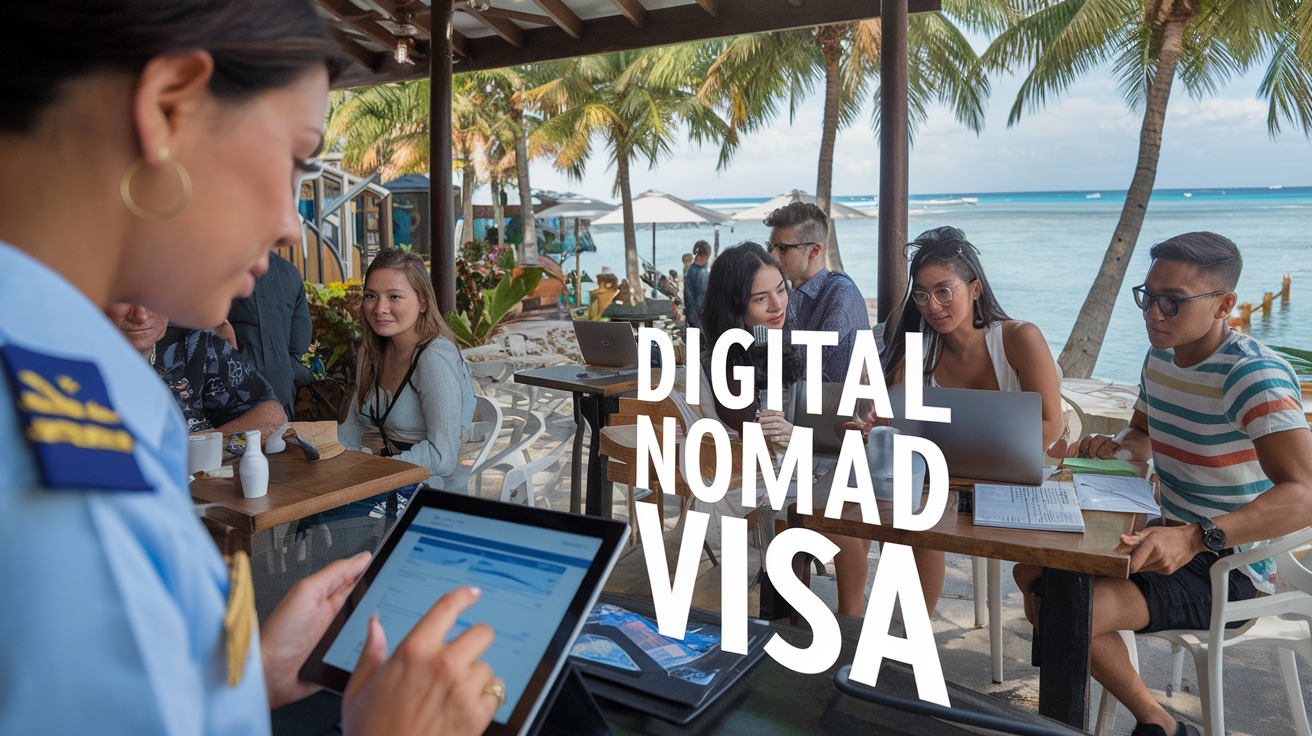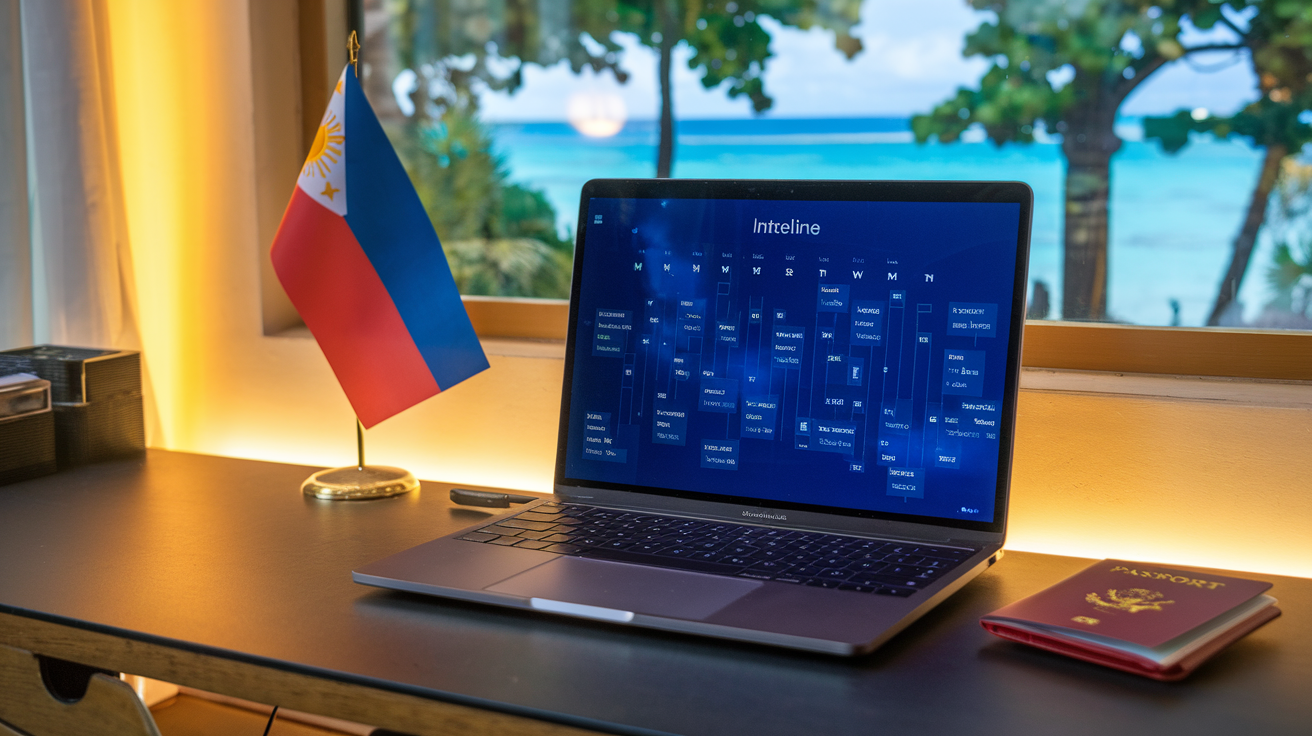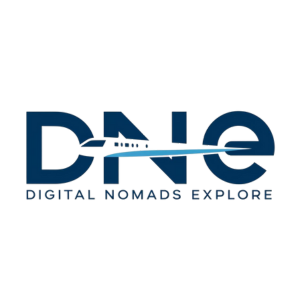Attention, digital nomads and remote workers! 🌴💻 The Philippines is about to shake up the world of location-independent living with its groundbreaking Digital Nomad Visa (DNV). As the seventh fastest-growing remote work hub globally, this tropical paradise is opening its doors to global talent like never before.
Imagine working from pristine beaches, exploring vibrant cities, and immersing yourself in rich cultural experiences – all while enjoying the benefits of a dedicated visa program. The Philippines’ DNV offers an unprecedented opportunity for remote professionals to live and work in this island nation for up to a year, with options for renewal and multiple entries. But here’s the kicker: this visa comes with a set of unique features and requirements that could change everything about how you approach your digital nomad lifestyle.
Are you ready to discover the ins and outs of this game-changing visa? From understanding the eligibility criteria to navigating the application process, we’ll guide you through everything you need to know about the Philippines’ Digital Nomad Visa. Let’s dive into the details and explore how this innovative program could revolutionize your remote work journey! 🚀🌏
Understanding the Philippines’ Digital Nomad Visa (DNV)

A. Executive Order 86 introduction
President Ferdinand R. Marcos Jr. has approved Executive Order (EO) 86, introducing a groundbreaking Digital Nomad Visa (DNV) category for the Philippines. This initiative aims to:
- Enhance tourism
- Bolster the economy
- Allow foreign nationals to reside and work remotely in the country
Under EO 86, the Department of Foreign Affairs (DFA) is empowered to issue DNVs to non-immigrant foreigners working for clients or employers outside the Philippines. Key features of the DNV include:
| Feature | Description |
|---|---|
| Duration | Up to one year |
| Renewal | Possible |
| Entry | Multiple entries during visa validity |
B. Philippines as a growing remote work hub
The Philippines has positioned itself as a significant player in the global remote work landscape. According to the World Economic Forum, the country ranks as the 7th fastest-growing remote work hub in 2023. This status makes it an attractive destination for digital nomads seeking:
- English proficiency among locals
- Natural beauty
- Cultural diversity
- Affordable cost of living
Popular cities for digital nomads include:
- Manila
- Cebu City
- Palawan
- Siargao
- Davao City
These locations offer coworking spaces and vibrant communities, although challenges such as extreme weather, traffic congestion, and varying internet reliability exist.
C. Key eligibility criteria for DNV applicants
To qualify for a Digital Nomad Visa in the Philippines, applicants must meet the following criteria:
- Be at least 18 years old
- Demonstrate proof of remote work through digital means
- Possess adequate income from outside the Philippines (expected to be around $24,000 annually)
- Maintain an unblemished criminal record
- Have health insurance for the duration of their stay
- Come from a country that reciprocates DNVs for Filipinos
- Pose no security risks to the Philippines
Applicants from countries without a Philippine Foreign Service Post can submit applications at the nearest post.
Now that we have covered the introduction of Executive Order 86, the Philippines’ status as a growing remote work hub, and the key eligibility criteria for DNV applicants, we’ll explore the Benefits and Features of the DNV in the next section. This will provide a deeper understanding of the advantages this new visa category offers to digital nomads considering the Philippines as their next destination.
Benefits and Features of the DNV

Now that we have covered the basics of the Philippines’ Digital Nomad Visa (DNV), let’s delve into the exciting benefits and features this visa offers to remote workers.
A. Duration of stay and entry options
The Digital Nomad Visa program in the Philippines provides an attractive opportunity for non-immigrant foreigners to work remotely while enjoying the country’s beautiful landscapes and affordable living costs. Once issued, the DNV allows holders to stay in the Philippines for a generous period of one year. This extended duration gives digital nomads ample time to explore the country, immerse themselves in the local culture, and establish a comfortable work routine.
B. Potential for visa renewal
One of the most appealing aspects of the Philippines’ DNV is the possibility of renewal. After the initial one-year stay, visa holders have the option to extend their stay for an additional year. This feature provides flexibility for those who wish to continue their remote work arrangement in the Philippines for a longer period.
C. Multiple entry privileges
The DNV comes with multiple entry privileges, allowing holders to freely enter and exit the Philippines during the validity of their visa. This benefit is particularly valuable for digital nomads who may need to travel for work or personal reasons.
Here’s a summary of the key benefits and features of the Philippines’ Digital Nomad Visa:
| Feature | Description |
|---|---|
| Initial Stay | 1 year |
| Renewal Option | Additional 1 year |
| Entry Privileges | Multiple entries allowed |
| Work Arrangement | Remote work for foreign clients/employers |
| Living Benefits | Access to affordable living costs and beautiful landscapes |
These features make the Philippines’ Digital Nomad Visa an attractive option for remote workers looking to experience life in a tropical paradise while maintaining their international work commitments.
With these benefits and features in mind, next, we’ll explore the application process and requirements for obtaining the Digital Nomad Visa, providing you with the essential information to start your journey towards working remotely from the Philippines.
Application Process and Requirements

Now that we’ve explored the benefits and features of the Philippines’ Digital Nomad Visa (DNV), let’s delve into the application process and requirements. Prospective applicants should be aware of several key criteria they need to meet to be eligible for this visa.
A. Age and remote work proof
While there’s no specific age requirement mentioned for the Philippines DNV, applicants must provide proof of remote employment or self-employment. This documentation is crucial to demonstrate that you’re a genuine digital nomad working for clients or employers outside the Philippines.
| Required Documentation |
|---|
| Valid passport |
| Proof of remote work |
| Employment evidence |
B. Income and health insurance requirements
To qualify for the DNV, applicants must meet a minimum income threshold. Although the exact amount is yet to be officially confirmed, it’s expected to be around $24,000 annually. This requirement ensures that visa holders can support themselves during their stay in the Philippines.
Additionally, international health insurance valid in the Philippines is mandatory. This requirement protects both the visa holder and the host country from potential healthcare-related issues.
C. Criminal record and security clearance
A clean criminal record is essential for DNV applicants. You’ll need to obtain a criminal record certificate from your home country as part of the application process. This requirement helps maintain security and ensures that only individuals with good standing are granted the visa.
To summarize the key requirements:
- Proof of remote work or self-employment
- Sufficient income (estimated $24,000/year)
- Valid international health insurance
- Clean criminal record
The application process involves registering on the official online visa portal, compiling necessary documents, submitting the application online, and following up with an appointment at a Philippine embassy or consulate. While the exact application fee is yet to be disclosed, it’s anticipated to be affordable.
With these requirements in mind, we’ll next explore the administrative aspects of the DNV program, including processing times and potential renewal procedures.
Administrative Aspects of the DNV Program

Now that we have covered the application process and requirements for the Digital Nomad Visa (DNV), let’s delve into the administrative aspects of the program. The Philippine government has put in place several measures to ensure the smooth implementation and monitoring of the DNV program.
A. DFA database for monitoring DNV holders
The Department of Foreign Affairs (DFA) has been tasked with creating and maintaining a comprehensive database for DNV holders. This database will serve multiple purposes:
- Track and monitor the status of DNV holders
- Ensure compliance with visa regulations
- Facilitate efficient management of the program
It’s important to note that the DFA will adhere strictly to data privacy laws while managing this database, protecting the personal information of DNV holders.
B. Collaboration with Bureau of Immigration
To effectively implement the DNV program, the DFA will work closely with several government agencies, including the Bureau of Immigration. This collaboration aims to:
- Streamline the entry and exit processes for DNV holders
- Ensure proper documentation and record-keeping
- Facilitate visa renewals and extensions
- Address any immigration-related issues that may arise
| Agency | Role in DNV Program |
|---|---|
| DFA | Database management, visa issuance |
| Bureau of Immigration | Entry/exit processes, visa compliance |
| Department of Justice | Legal oversight |
| Department of Tourism | Promotion and support |
| Bureau of Internal Revenue | Tax-related matters |
C. Application options for countries without Philippine foreign service posts
The Philippine government has recognized that some potential DNV applicants may come from countries without a Philippine Foreign Service Post. To accommodate these individuals, the following provision has been made:
- Applicants can submit their DNV applications at the nearest Philippine Foreign Service Post
This flexibility ensures that the DNV program is accessible to a wider range of digital nomads, regardless of their home country’s diplomatic representation in the Philippines.
With these administrative aspects in place, the DNV program is well-positioned to attract and support digital nomads from around the world. In the next section, we’ll explore important considerations for DNV holders to ensure a smooth and enjoyable stay in the Philippines.
Important Considerations for DNV Holders

Now that we’ve covered the administrative aspects of the DNV program, let’s delve into some crucial considerations for DNV holders. These points are essential for maintaining compliance and ensuring a smooth stay in the Philippines.
A. Grounds for visa revocation
Digital Nomad Visa holders must be aware of the circumstances that could lead to their visa being revoked:
- Engaging in local employment
- Committing fraud during the application process
- Violating immigration laws
It’s crucial to adhere strictly to the visa conditions to avoid any potential issues with your stay.
B. Restrictions on local employment
One of the key aspects of the DNV is the prohibition on local employment. Here’s what you need to know:
| Allowed | Not Allowed |
|---|---|
| Remote work for foreign clients | Working for Philippine-based companies |
| Income from outside the Philippines | Earning from local sources |
| Freelance work for international employers | Participating in local job markets |
DNV holders must maintain their remote work status and ensure their income continues to come from sources outside the Philippines.
C. Compliance with immigration laws
To maintain your DNV status, strict adherence to immigration laws is essential:
- Maintain valid health insurance throughout your stay
- Keep your passport and visa documents up to date
- Report any changes in your employment or income status
- Respect the duration of stay permitted by your visa
- Comply with any additional regulations set by the Department of Foreign Affairs (DFA)
Remember, the DFA will maintain a database of DNV holders to monitor compliance. It’s in your best interest to stay informed about any updates or changes to the visa regulations during your stay.
With these important considerations in mind, next, we’ll explore the implementation timeline for the DNV program, which will provide insight into when and how this exciting opportunity will become available to digital nomads worldwide.
Implementation Timeline

Now that we have covered the important considerations for Digital Nomad Visa (DNV) holders, let’s delve into the anticipated timeline for the implementation of this exciting new program in the Philippines.
A. Program launch within 60 days
The Philippines is gearing up to introduce its digital nomad visa, with plans to make it available by early 2024. This ambitious timeline suggests that the program will be launched within approximately 60 days from the announcement. Here’s what we know about the launch:
- The visa will allow remote workers from other countries to live in the Philippines for an initial 12-month period.
- There’s an option to extend the stay for an additional year.
- While waiting for the official launch, remote workers can enter the country as tourists.
| Visa Type | Duration | Extendability |
|---|---|---|
| Digital Nomad Visa | 12 months | Up to 1 additional year |
| Tourist Visa (U.S. citizens) | 59 days | Up to 6 months |
| Tourist Visa (EU, Canada, Australia, NZ) | 30 days | Extendable |
B. Implementing rules to follow in 30 days
Following the program launch, the government is expected to release the implementing rules and regulations within 30 days. These rules will likely cover:
- Application process details
- Specific requirements for applicants
- Administrative procedures
Based on the information provided, here are some key aspects that the implementing rules are likely to address:
- Minimum income requirement: Approximately $24,000 annually
- Employment proof: Documentation from a foreign source
- Health insurance: Full coverage requirement
- Criminal record: Clean record mandatory
- Tax implications: Exemption from local income tax on international earnings
- VAT: Subject to 12% local value-added tax
It’s important for potential applicants to stay informed about these upcoming rules, as they will provide crucial guidance for successfully obtaining and maintaining the digital nomad visa in the Philippines.

The Philippines’ Digital Nomad Visa program marks a significant milestone in the country’s efforts to attract remote workers and digital professionals. With its attractive features, including a one-year stay with renewal options and multiple entries, the DNV offers an exciting opportunity for those looking to experience the Philippines’ vibrant culture while working remotely. The streamlined application process, coupled with clear eligibility criteria, makes it accessible for qualified individuals from countries with reciprocal agreements.
As the seventh fastest-growing remote work hub globally, the Philippines is poised to become a prime destination for digital nomads. With the program set to launch within 60 days, interested individuals should start preparing their applications and considering the potential impact on their work and lifestyle. Whether you’re a seasoned digital nomad or considering your first extended stay abroad, the Philippines’ DNV program could be the game-changing opportunity you’ve been waiting for.
